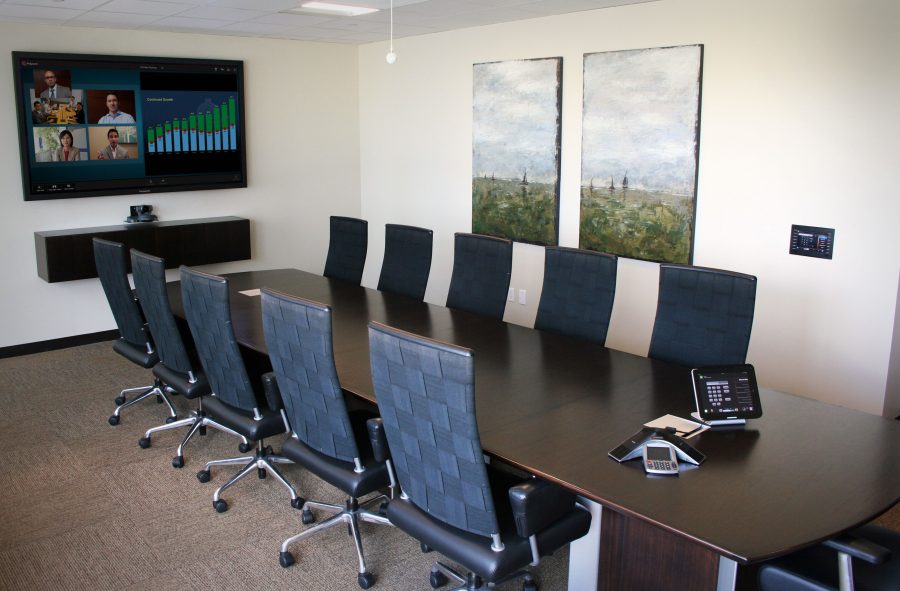The AV industry is growing at a rapid pace, and it seems that new integrators jump into the market every day. The Audiovisual and Integrated Experience Association, or AVIXA, has tracked the state of the industry, and published its 2018 findings in its AV Industry Outlook and Trends Analysis Global Summary. In its summary, AVIXA projects the AV industry to grow from $186 billion in 2018 to $230 billion in 2023. The summary stated that the AV market is especially robust in the corporate sector, so businesses are looking to AV solutions more than ever before.
That means decision-makers must decide on an integrator, but where should such a decision begin? With so many AV integrators competing for clients, what should a company prioritize in audio and video companies?
A reputable AV integrator is going to stand out in four ways – communication, experience, a service-oriented mission and technology.
Before Integration, Communication
AV solutions are, with few exceptions, about improving a client’s ability to communicate. It’s important that the integrator demonstrates strong communication skills of their own.
The integration process involves a great deal of planning and understanding. Before any equipment is selected or installed, the integrator must fully grasp the client’s needs. This is why a reputable integrator will always provide consultation and a site survey before moving forward on any solution. During consultation, the integrator and client work together to envision a solution for the client’s issues. From the outset, the client should have a clear idea of the project’s direction, as well as the project’s expense, timeline and expected outcome.
The site survey is also critical, as it ensures the integrator has all the knowledge they need to put the solution together. For example, a site survey will reveal if there are any existing AV technologies, how the building and its infrastructure are laid out, and how the room’s composition will affect sound or video.
Communication, then, is not just about keeping the client apprised of the project. It’s also essential for proper project execution.
Experience is Essential
With the AV industry undergoing a wave of growth, inexperience is common among audio and video companies. That’s a problem, because experience is particularly important for executing AV solutions. Any integrator can install a display or a projector, but experience is needed for complete, advanced solutions, like installing large video walls, setting up immersive collaboration technology and ensuring perfect intercompatibility between system components. As corporations are often in need of advanced collaboration and conferencing solutions, they cannot compromise on an integrator’s experience. In a market as competitive as AV, only the most talented and reputable integrators are able to maintain operations for years.
Experience also demonstrates an integrator’s ability to adapt to changes in the industry, and that’s an advantage for the client if the integrator provides ongoing services. Technology and solutions change fast in AV, and a reputable integrator will be better equipped to stay on the leading edge.
Integrators Should Prioritize Service
The AV industry is steadily transitioning to an
AV-as-a-Service, or AVaaS, model. Businesses that opt for AVaaS get the access they need to modern AV technology and solutions, without committing to a lump sum, or CapEx, investment upfront.
There are several reasons why this approach makes sense for companies, but perhaps the most important is that AV technology is updated in cycles. Eventually, even the best conceived, designed and installed system will need to be replaced. If an AV integrator offers ongoing support and service, they will have excellent insight into how to update and upgrade the company’s technology.
A reputable integrator should offer several service agreement options following system installation. A service agreement ensures the technology is supported in the event of a technical issue. Service agreements also ensure warranties are utilized properly, equipment is repaired promptly, training is delivered to the client’s personnel, and system components are replaced when it’s time. A service agreement can also include preventative maintenance, which means the integrator sends an expert to the client’s facilities to inspect and reconfigure system components, should they require it. This keeps the system functioning optimally and defends against unexpected downtime.
Leading Technology
Audio and video companies rely on technology to deliver solutions. The technology should come from industry-leading manufacturers and should represent the best offerings from that manufacturer. This is another area where experience serves an integrator well because there are many AV equipment manufacturers, and there is a lot of overlap in what they offer.
Poly’s (formerly Polycom’s)
audio and video conferencing technology, Crestron’s and Extron’s control technology, digital displays produced by Planar and Christie, Shure’s microphones, the Clevertouch and ActivPanel – these are some of the best examples of AV technology on the market. Reputable audio and video companies depend on manufacturers like these to produce quality equipment. If your integrator is settling for something less, they won’t be able to deliver an effective solution.
The Core Four
The audio and video company you’re looking for should provide strong communication, a service-based professional relationship, impressive experience and quality technology. If they do, they can be trusted to steer an AV project from start to finish, and maintain its effectiveness long after the equipment has been installed.



